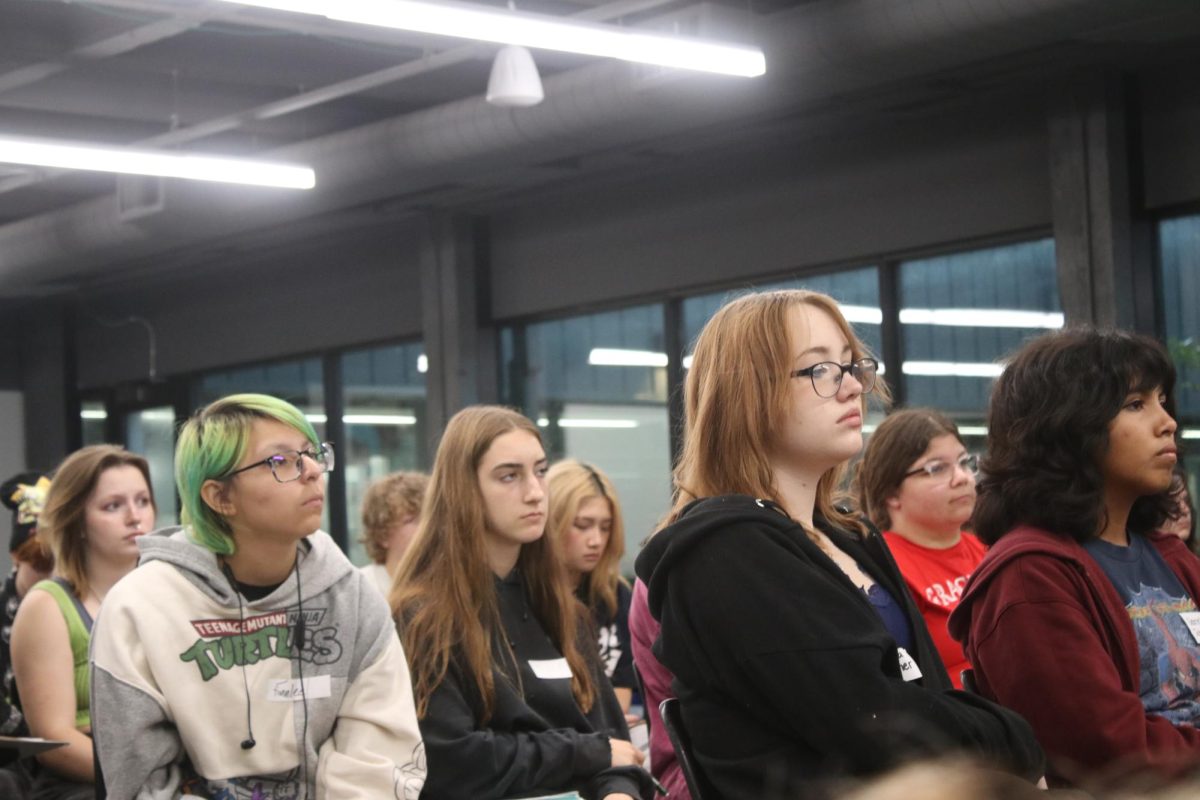When it comes to applying for secondary schooling, there’s no denying the prominence of the FAFSA: the Free Application for Federal Student Aid.
Whether it be through a Pell Grant, work-study, loan, or a combination of the three, the monetary perks provided by this government-issued document are absolutely crucial in most cases of applying to college, especially for those living on a limited income.
However, due to some major changes, this academic year, the belated FAFSA rollout has been majorly difficult for families, colleges, and counselors across the country, including those at Lawrence High School.
“This year, FAFSA is actually kind of a mess,” school counselor Michelle Frantz said. “The government is redoing or redid the application process in order to simplify it. That has actually turned out to be quite complicated and it’s been full of glitches.”
One of these complicated glitches led to senior Tony Jacobsen being completely unable to access and complete the document.
“The biggest issue, I think I had trying to set up my account, was just the fact that, with so many people trying to set up their accounts, it locked my account before I could make one so I had a limited account where I couldn’t actually fill out any forms but I could see the scholarships open,” Jacobsen said. “It was just hard and every time we called them about it, they just said the best solution was to wait a few days to get into it.”
Needless to say, these delays have been causing major headaches for Jacobsen, who is dependent on financial aid as a student-athlete.
“A big thing is, since I’m an athlete, it’s really hard to get offers from coaches because with the FAFSA, it tells them how much they should offer you to help you financially and since I couldn’t get logged in, a lot of coaches were giving me just blind numbers on what finances would be like,” Jacobsen said.
Due to her experience in higher education, KU academic advisor Melody Lawrence has seen firsthand how FAFSA issues impact not just students like Jacobsen, but colleges as well.
“The impact on the FAFSA rollout has led FSA (Federal Student Aid) to work diligently to correct the known issues, which has in effect put them behind in processing the FAFSAs that have been completed,” Lawrence said. “FSA announced that they will not be sending FAFSA information to schools until mid-March which then means students will not receive award notifications until mid-to-late April.”
Despite these difficulties, Lawrence believes that the changes to the FAFSA will be a net positive for the program.
“I am hopeful that after the bugs are worked out the FAFSA will be a very streamlined process,” Lawrence said.
According to Leah Nicholson, the Associate Director of Outreach and Financial Wellness for KU, this process will make the FAFSA a more approachable document.
“The user experience of filling out the form is completely different,” Nicholson said. “The new FAFSA has a lot less questions than the old one, which overall should make it easier for students and families to complete. There is more skip logic and more automation present on the new form. If an individual filed taxes and provides consent on their FAFSA, their information is now also being automatically pulled over to the FAFSA, which simplifies the process further.”
Nicholson does acknowledge the lasting, more uncertain aspect of these changes, however.
“The more issues that come up, the less trust students and families will have in the FAFSA and the financial aid process, which could result in less people filling out the FAFSA in the future,” Nicholson said. “But we really won’t know until we start getting more information.”
Despite this uncertainty, Frantz still emphasizes the importance of filling out the FAFSA.
“I think every student should fill out the FAFSA and find out, like get your cards on the table before you make a decision about whether or not you go to college or which college you go to,” Frantz said.






